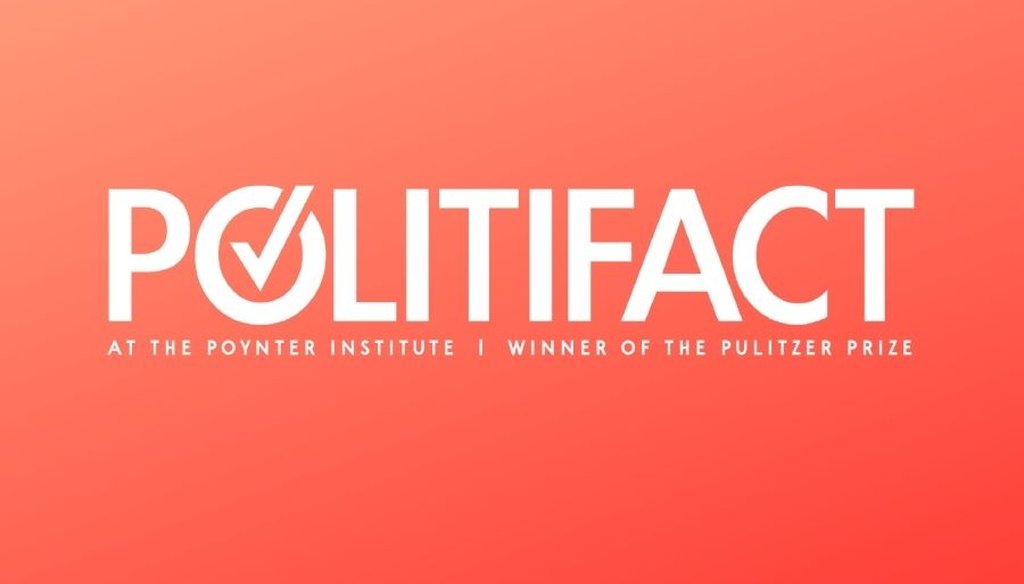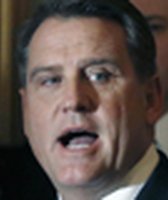Get PolitiFact in your inbox.

The Supreme Court announced its ruling on the health care law on Thursday.
Republican National Committee Chairman Reince Priebus said during a recent visit to Richmond that two-thirds of Americans want the U.S. Supreme Court to block all or part of President Barack Obama’s health care reform law.
As the high court ponders the constitutionality of a mandate in the law that would require Americans to have health insurance, we thought we’d review exactly what the polls are saying about the reforms.
Priebus was referring to an ABC News/Washington Post national poll released on March 19. Sixty-seven percent said they wanted the court to either get rid of the entire law or just its health insurance mandate.
The breakdown was 42 percent favored throwing out the whole law, another 25 percent favored getting rid of just the mandate and 26 percent said they prefered the entire act be upheld. Seven percent had no opinion.
The ABC/Washington Post polling summary said while the survey showed two-thirds of respondents want at least part of the law thrown out, the results could be interpreted another way.
"The data also can be construed to show that 51 percent favor either keeping the whole law or the law minus the mandate, (26 and 25 percent, respectively)," the poll’s summary states.
When respondents who favored keeping the law without the mandate were forced to choose between upholding the act entirely or throwing it out, the results shifted somewhat. Fifty-five percent supported outright repeal and 37 percent said keep the law.
The poll showed that the most popular parts of the law -- such as keeping coverage for children up to age 26 and prohibiting the denial of insurance based on pre-existing conditions -- are outweighed by opposition to the health care mandate.
Other polls conducted in late March also show strong majorities want the court to strike down at least part of the law:
*A CBS/New York Times poll found 38 percent wanted to overturn the entire law. Another 29 percent wanted to throw out the mandate but keep the rest of the act. Twenty-six percent wanted to retain the entire law.
*A CNN/ORC poll found 30 percent wanted the court to overrule the law entirely while another 43 percent said the court should throw out just some of its provisions, though the question didn’t specify which ones. Twenty-three percent said the law should be kept as is.
*A McClatchy/Marist poll found 34 percent wanted the whole law tossed and another 21 percent just wanted the mandate declared unconstitutional. Thirty-five percent hoped the law would remain intact.
Michael Dimock, associate research director at the Pew Research Center for the People & the Press said opposition to the mandate is rooted in the feeling that the government is placing a requirement on people.
"This (the mandate) is an unpopular element of the bill, it has been from the start," he said.
Still, a March 26 analysis by the Pew Research Center found the level of opposition and support for the mandate changes depending on how poll questions are asked.
Pew found in its own March poll that the mandate faced stiff opposition when the question on it ended by noting people who don’t buy insurance would pay a penalty. In that case, 63 percent disapproved of the mandate and 34 percent approved.
But when the question ended by saying people who can’t afford health insurance would receive financial help from the government to get coverage, the response was split -- 49 percent disapproved of the mandate and 47 percent approved.
Pew noted seven polls it examined over the past five months have shown widely varying support for spiking the law, depending on how the question on repeal is asked. Some polls in early March -- including Pew’s own survey and one by Kaiser Health -- showed either pluralities or majorities favor keeping or expanding the law.
Our Sources
Republican National Committee Chairman Reince Priebus comments at Old City Bar news conference, March 28, 2012.
E-mail from Allie Brandenburger, RNC spokeswoman, March 29, 2012.
ABC News "As health care law’s trial approaches, two-thirds say ditch individual mandate," March 19, 2012.
CNN/ORC Poll, March 26, 2012.
Kaiser Health Tracking Poll, March 2012.
McClatchy/Marist Poll, "Majority wants highest court to change at least part of health care law," March 26, 2012.
Bloomberg, "Exclusive poll: Americans think politics will influence justices’ health care votes," March 14, 2012.
Quinnipiac University, "American voters hum ‘happy days are here again,’ Quinnipiac University National Poll finds; but confidence does not lift Obama," Feb. 23, 2012.
Huffington Post, "Obamacare shows little change since reform’s passage," March 27, 2012.
Fox News Poll, March 15, 2012.
Interview with Karlyn Bowman, senior fellow at the American Enterprise Institute, March 29, 2012.
Interview with Michael Dimock, associate director of research at the Pew Research Center for the People & The Press, March 29, 2012.
Interview with William Galston, senior fellow at the Brookings Institute, March 29, 2012.
Interview with Bob Coker, Managing Director of the Mason Dixon Polling & Research, March 29, 2012.
American Enterprise Institute, "AEI special report: health care attitudes," March 2012.
Pew Research Center, "Public remains split on health care bill, opposed to madate," March 26, 2012.
CBS News, "Poll: 1 in 4 want Supreme Court to uphold health care law," March 26, 2012.
CBS News/New York Times Poll, March 26, 2012.
McClatchy, "Obama’s health care law remains huge political issue," March 23, 2012.
National Journal, "Public still opposes health care mandate," March 27, 2012.
PolitiFact "Santorum says Americans ‘overwhelmingly’ oppose health law, mandate," March 26, 2012.













































